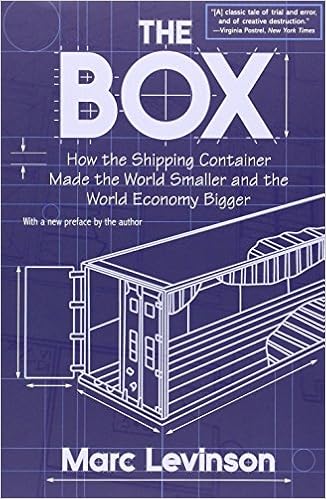What is it about?
In the book, Levinson tells the story of the shipping container from its early beginnings (and, to be precise, its precursors), including the thinking behind its "father", Malcom McLean.
Moreover, in a book-long treatment, Levinson is able to discuss quite in depth, e.g., the standardization processes involved in specifying the dimensions of the containers as well as some of the key technical features in them, such as crane fittings.
Nonetheless, perhaps the best discussion in the book concerns the implications of the container, both locally (e.g. shore-side industry) and globally (global distribution of manufacturing and other economic activity).
Was it good?
I really enjoyed the book throughout. Levinson has been able to strike a nice balance between "telling a story" by following some key individuals - mostly Malcom McLean - and offering a more abstract or general discussion of key events and their effects. However, for me the key strength of the book was the "big picture" it painted - what were the mechanisms involved in making the standard shipping container an ubiquitous mode of transportation especially in international trade, and what, in turn, this brought about both on a local and global scale.
The main take-away for me?
There were basically two main take-aways for me. First, establishing a standard, especially one with a global reach, really needs a substantial work, acceptance and investments in multiple domains with which the standard interfaces (and some luck in addition). And second, such a standard can have equally multifaceted implications in equally numerous facets of economic activity. Thus, a standard succeeds or fails in a complex web of activity.
Who should read the book?
I think that the book is of general interest, and is told in such a manner that basically anyone can enjoy it. However, I think that readers with some standardization ambitions, or those involved in logistics, would derive most tangible benefit from reading the book.
The book on Amazon.com: The box

No comments:
Post a Comment